🌍 Frontier Markets News, August 9th 2025
A weekly review of key news from global growth markets

Africa
‘Prejudice premium costs Africa $75bn a year’
Incorrectly priced risk and perceptions of default cost African countries $75 billion per year, Bloomberg reports. According to Samaila Zubairu, the CEO of regional multilateral lender Africa Finance Corp., this “prejudice premium” phenomenon results in “really, really exaggerated” default rates.
For the past three decades, return on infrastructure investments in Africa was six times that of the S&P 500, and World Bank data shows that from 2010-2020, the continent had the second-lowest rate of default on infrastructure loans. Its debt costs are much higher than other regions’, however. On average, a bondholder gets 9.8% for African debt, against 6.5% for Latin American, for example.
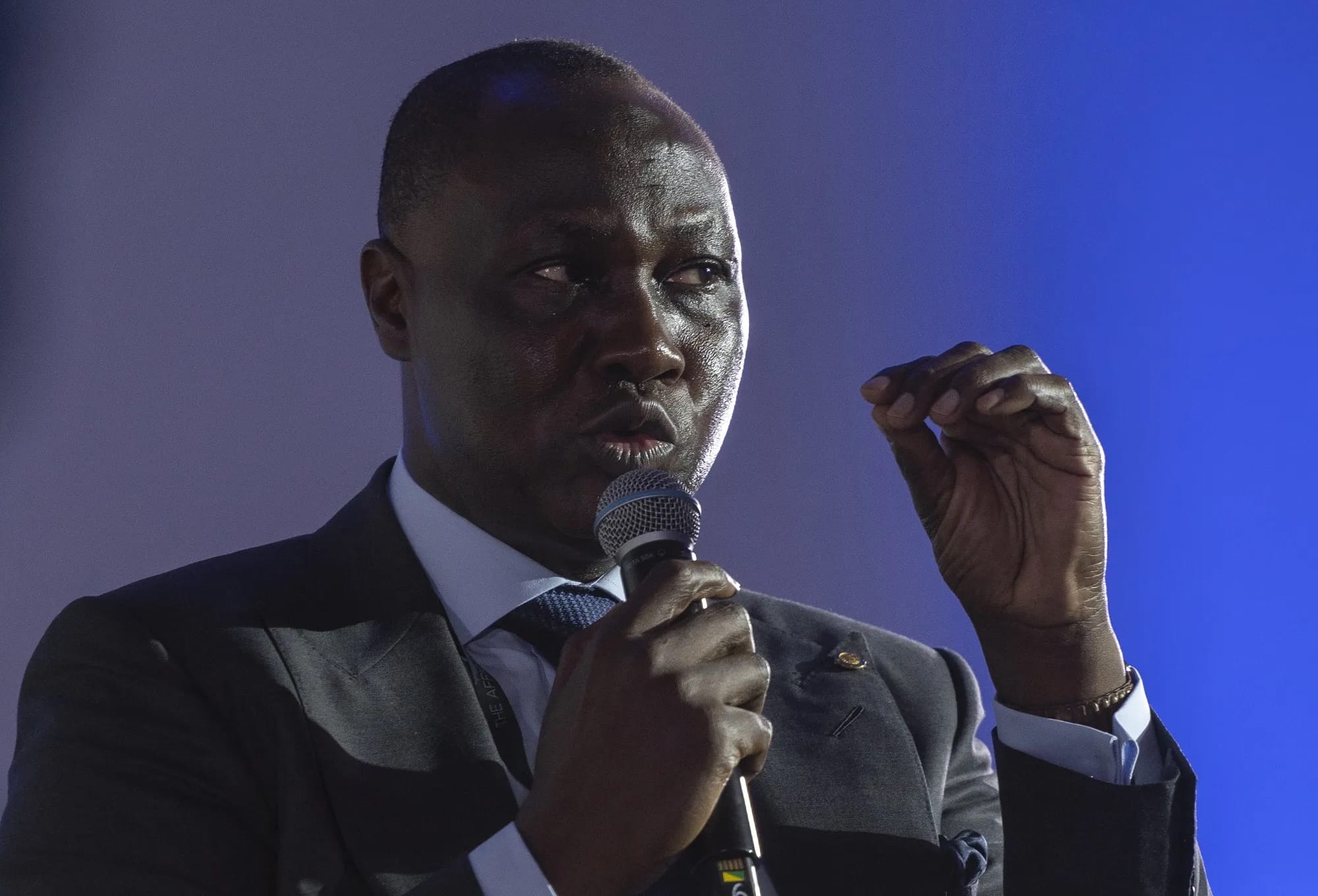
African governments have repeatedly accused the big credit ratings firms, Fitch, Moody’s and S&P Global, of bias against the continent, but Zubairu said African institutions have to help change the narrative, too. “We need to have a program whereby we’re putting out more data on our actual economy and the performance of the various components of the economy,” he told a conference in South Africa this week.
Nigeria imposes new fossil fuel tax
The Nigerian government is planning to levy a 5% tax on refined fossil fuels, Semafor reports. The rule, signed by President Bola Tinubu, will go into effect in January 2026.
The policy’s aim is to increase clean energy use, but it could also raise more than half a billion dollars annually. Currently, almost half of Nigeria’s domestic energy production comes from oil. The fossil fuel tax is part of the Nigeria Tax Administration Act, one of four tax reform bills signed by Tinubu in recent months aimed at improving revenue collection and strengthening government finances.
It will apply a surcharge to petrol and diesel. Cooking gas and compressed natural gas, the use of which the government has made efforts to bolster, will be exempt.
Zambia seeks another $145 million from IMF extension
Zambia announced on Tuesday that it hopes to lock down an extra $145 million by extending its IMF program, Reuters reports. The southern African country said last month that it would seek an extension of its current IMF program by another 12 months ahead of its upcoming October deadline, but didn’t specify at the time how much funding it hoped to raise.
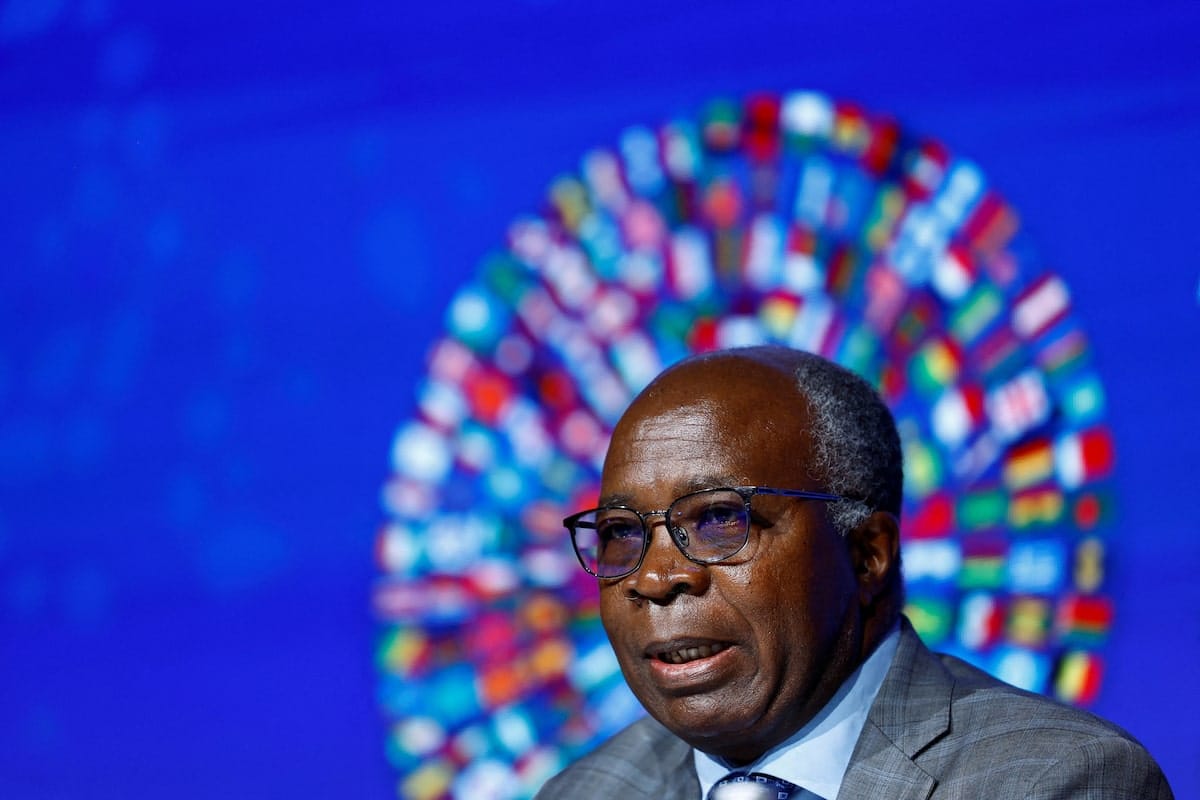
Zambia, a major copper-producing country, has been working on getting its finances in order after defaulting on its debt in 2020, and establishing an IMF deal in 2022. So far, the country has received around $1.5 billion under the $1.7 billion Extended Credit Facility.
Zambia’s economy appears to be thriving. Copper production jumped 18% in the first half of the year and is heading for a record, and tourist arrivals are also on track for a record. Finance minister Situmbeko Musokotwane said extending the IMF program would help reinforce investors’ confidence in Zambia’s transformation.
Asia
Cambodia conflict adds to Thailand’s economic woes
Thailand and Cambodia remain in a state of fragile truce after coming to blows last month. But if tensions between the neighboring states continue to hinder cross-border trade, Thailand could face nearly $2 billion in lost exports, Nikkei reports.
The conflict has already caused more than $300 million in damage to the Thai economy, according to a government estimate. On Tuesday the government approved plans to pay more than $300,000 to the families of each soldier killed in the conflict, and around $250,000 to the families of killed civilians.
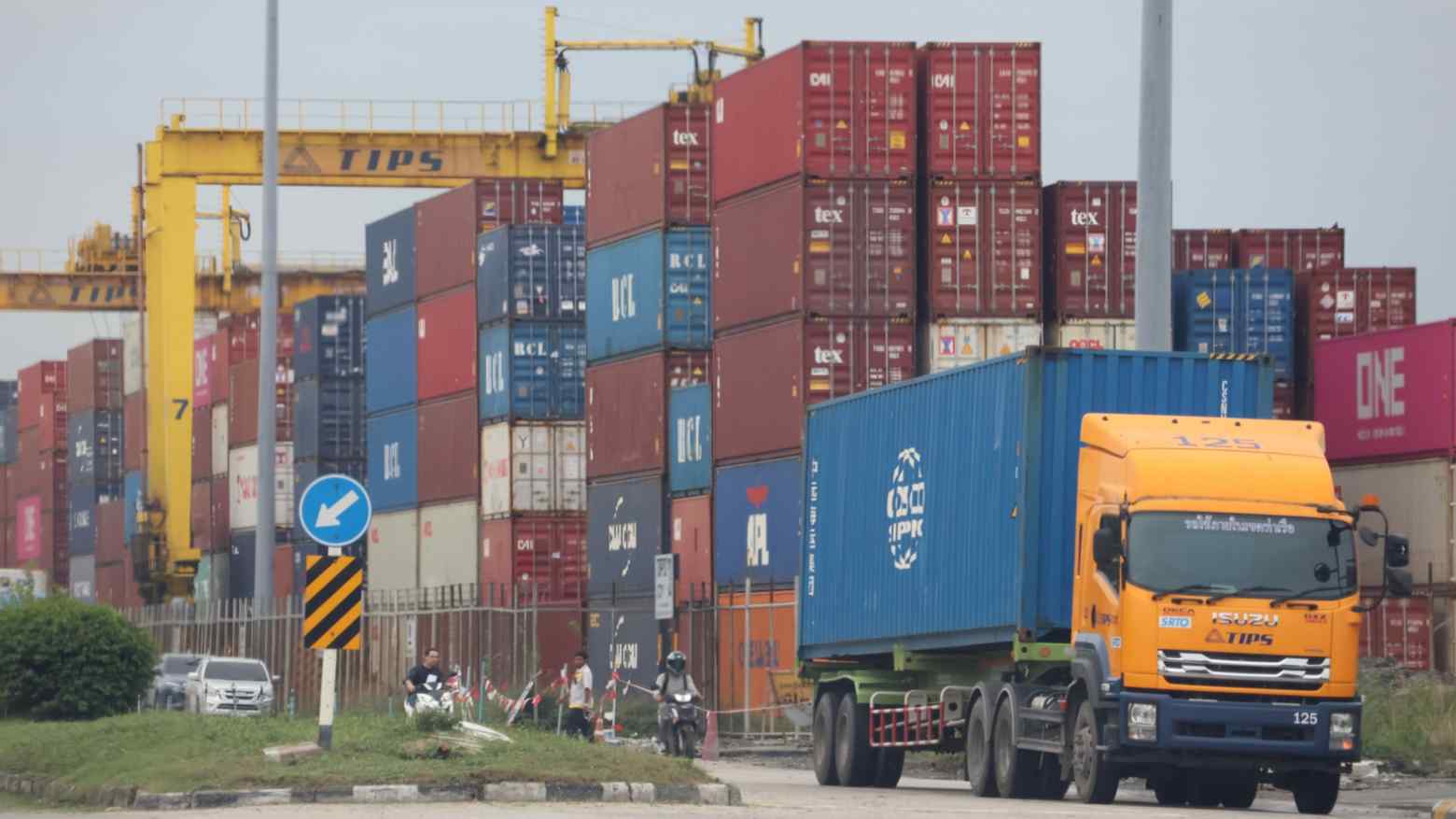
Thailand’s government this week agreed to also spend some $572 million on stimulus measures intended to support the economy as it adjusts to US tariffs of 19%. The measures will focus on improving economic competitiveness and supporting student loans, Reuters reports.
US trade deficit with Vietnam surpasses that with China
The US trade deficit with Vietnam has widened to an all-time high as businesses’ efforts to manage their way around Donald Trump’s tariff web have pushed more activity to the Southeast Asian nation from neighboring China.
At the same time, the deficit with China has been shrinking sharply. The June deficit with China was the lowest since 2004, Nikkei reports. China’s exports to Southeast Asia rose last quarter, suggesting enterprises are widening their strategies for sidestepping tariffs.
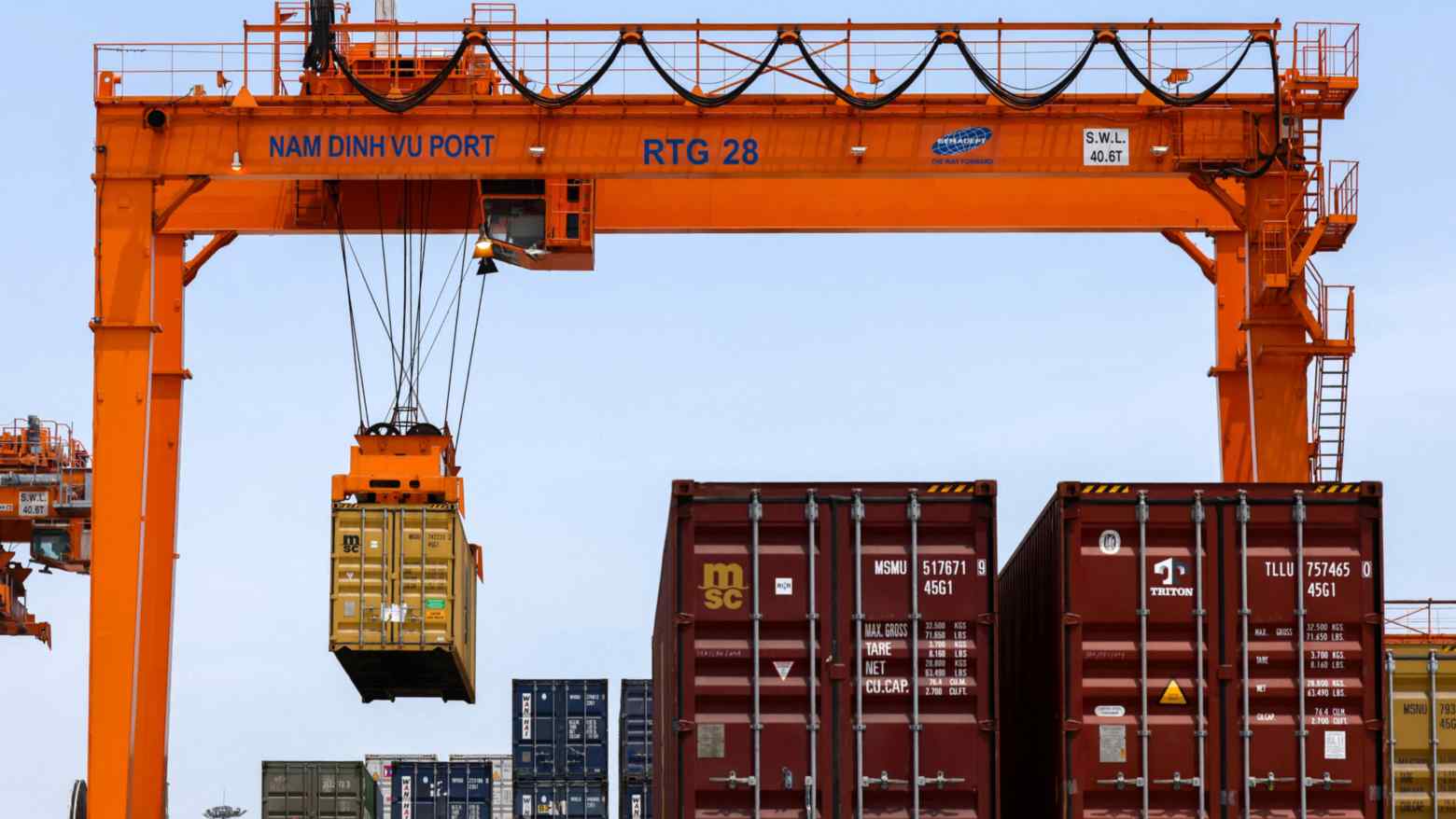
Whether this diversion will continue to be a profitable strategy is unclear. In trade deals with Vietnam and other Southeast Asian countries, the US promised 40% tariffs on “transshipped” goods—levels that are in some cases higher than tariffs on China itself. Tariffs on goods made in Vietnam will face a lower tariff of 20%.
Indonesian businesses question glowing economic data
Businesses in Indonesia painted a grimmer picture of the country’s economy than GDP data published this week. The data showed year-over-year growth of 5.1% last quarter.
Several economists questioned the figures, calling on the government to explain the data, Reuters reports. Some said the figure was likely a result of government stimulus and export front-loading ahead of US tariffs rather than fundamental strength, the FT reports. Business leaders noted that consumer spending in the country remains weak, foreign direct investment is falling, and the manufacturing sector has shed workers.
Indonesian officials said they use international standards to calculate economic data.
Middle East
Lebanon moves closer to banking sector restructuring
Lebanon’s banks this week began the process of resolving an impasse with the country’s government over some $80 billion in claims against the central bank, Bloomberg reports.
The banks are determined to hold the government and central bank responsible for steep losses incurred as a result of a 2016 financial restructuring scheme that used private bank deposits at the central bank to fund government spending. When the currency peg collapsed in 2019, the central bank defaulted on its obligations to private banks, creating the $80 billion hole in Beirut’s financial sector.
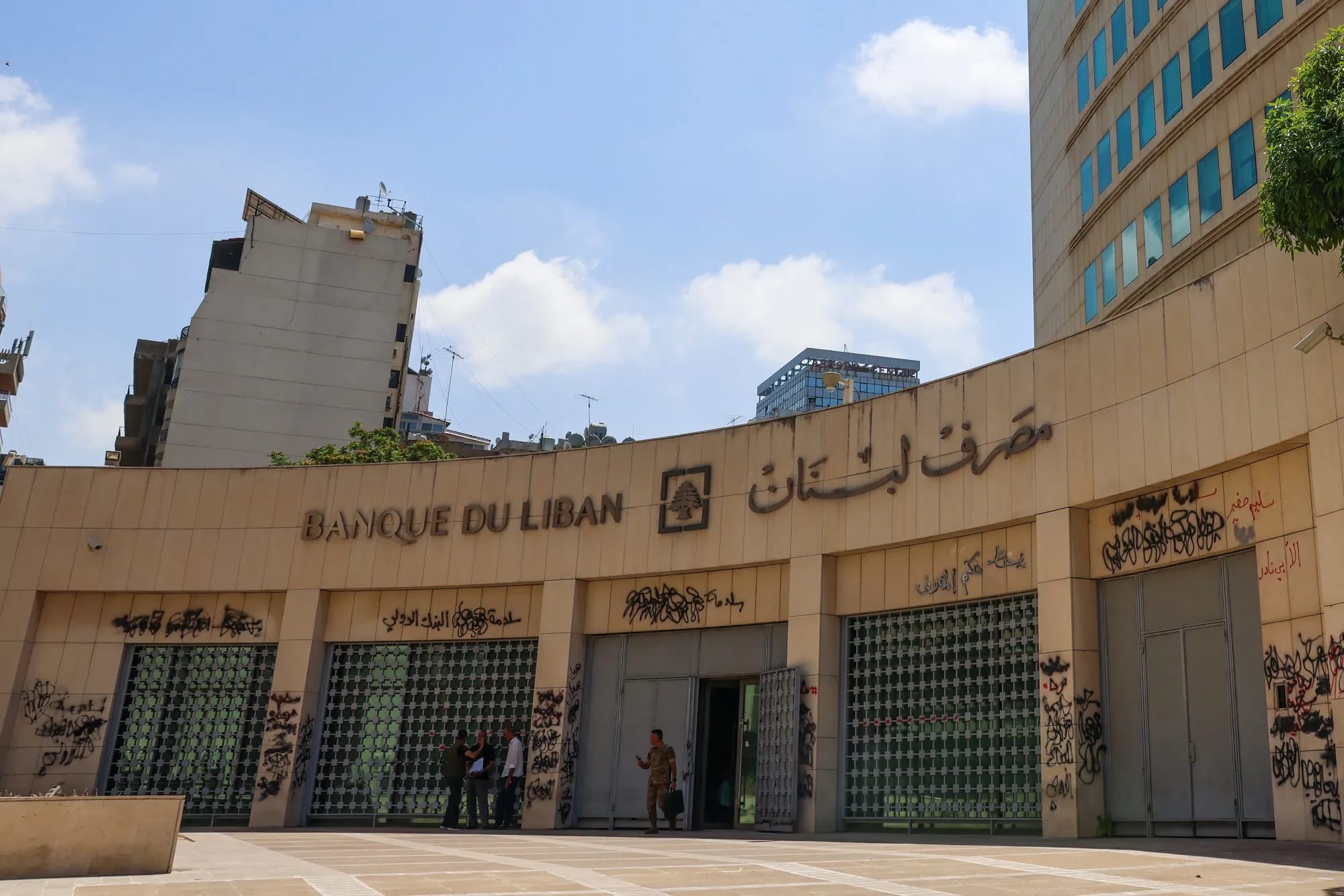
As part of its negotiations with the IMF, President Joseph Aoun’s government has committed to filling the hole and restoring customer deposits but the question of who absorbs the losses and how has to be resolved before the multilateral lender will move forward on any support program. Implementation of a law enabling restructuring of the country’s banking sector that was passed last week is also contingent on resolving the impasse between the government and the banks
Iran appoints moderate politician to lead security council
Iranian President Masoud Pezeshkian has appointed Ali Larijani, a former Revolutionary Guard Corps officer and nuclear negotiator, as head of the country’s highest-level security body, the FT reports. Formerly considered a hardline conservative, Larijani was forced out of former president Mahmoud Ahmadinejad’s government in 2007 for taking a more flexible position on negotiations around Tehran’s nuclear program.
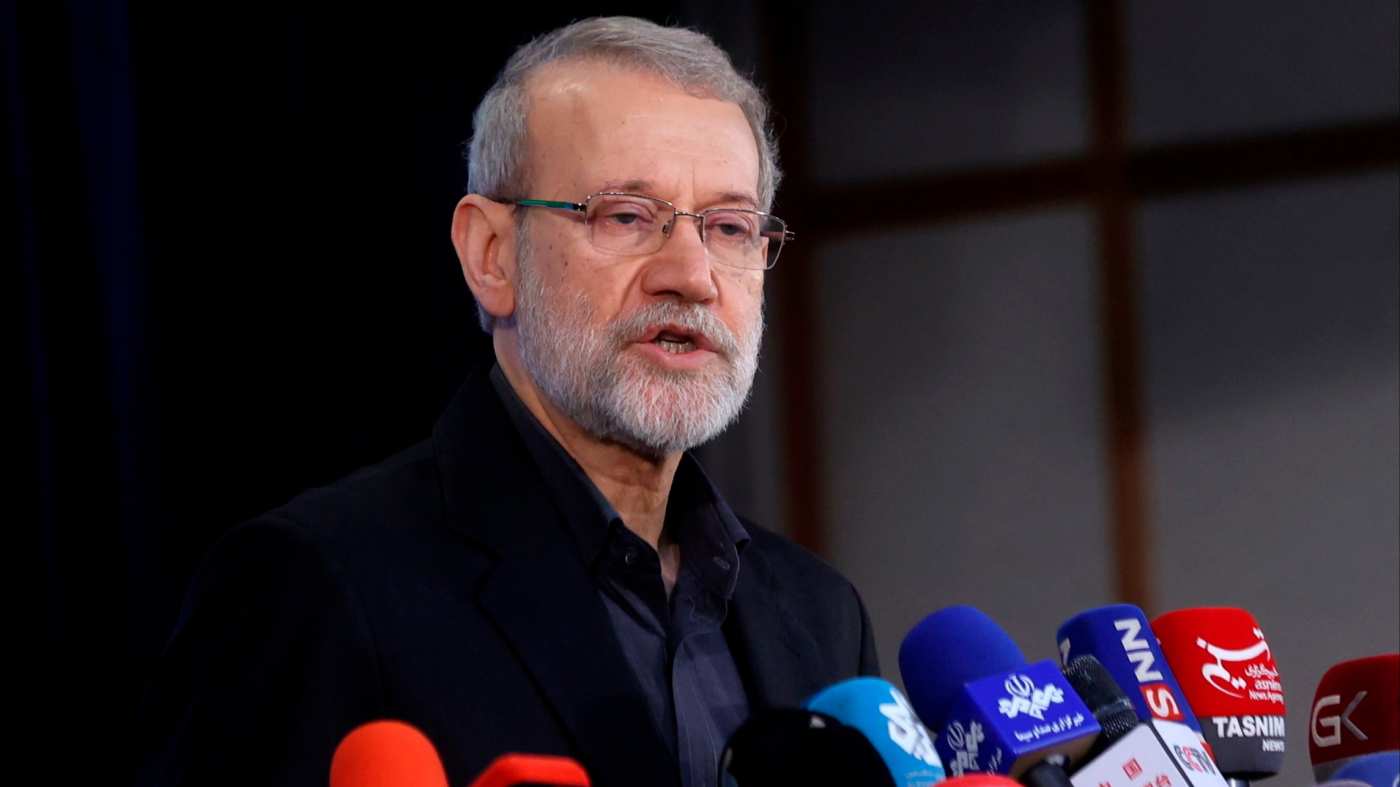
The appointment is seen as part of a wider reform program to address the shortcomings in Iran’s national security policies exposed by the disastrous 12 Day War with Israel.
In the wake of the war, Iran’s already perilous economic situation has worsened, with oil exports to China, which buys 90% of Iran’s production, dropping due to reduced demand. Iranian officials this week proposed redenominating the currency after decades of currency depreciation and inflation have eroded its value.
Syria struggles to maintain peace
New violence erupted in Syria’s Suwayda province this week, despite a US-brokered ceasefire, Al Jazeera reports. Officials in Damascus said fresh attacks on Sunday that resulted in the deaths of security forces personnel were carried out by armed groups affiliated with the Druze minority, which has been resisting efforts to centralize power in the hands of the transitional government.
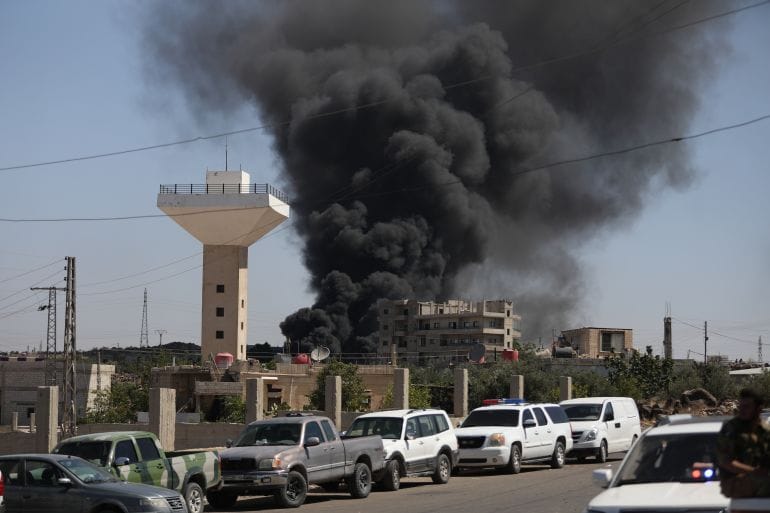
The Kurdish-led Syrian Democratic Forces also reported clashes with central government forces on Monday, in spite of a deal the group signed in March to integrate with Syria’s official state institutions, Reuters reports. Turkey, the longtime backer of current President Ahmed al-Sharaa, accused the SDF of repudiating the integration agreement.
Turkey is keen to reconstruct Syria’s economy and this week announced it will build industrial zones in the country to bolster bilateral trade—a sign of deepening commitment by Ankara to prop-up Al-Sharaa’s government. However, rebuilding Syria’s foreign trade sector, crushed by years of civil war and sanctions, faced a major setback this week as US President Donald Trump signed into effect a new tariff rate of 41% on Syria, among the highest in the world.
Europe
New conservative president threatens years of deadlock in Poland
Poland could face years of political gridlock after conservative Karol Nawrocki’s presidential victory handed the nationalist Law and Justice (PiS) party a powerful veto over Prime Minister Donald Tusk’s pro-EU government, Politico reports.
Nawrocki, who was sworn in this week, has vowed to block euro adoption, defend PiS-era judicial changes, and oppose legislation he says would undermine national identity or sovereignty. With parliament lacking the votes to override him, key reforms to secure EU funding are likely to stall until the next general election in 2027.
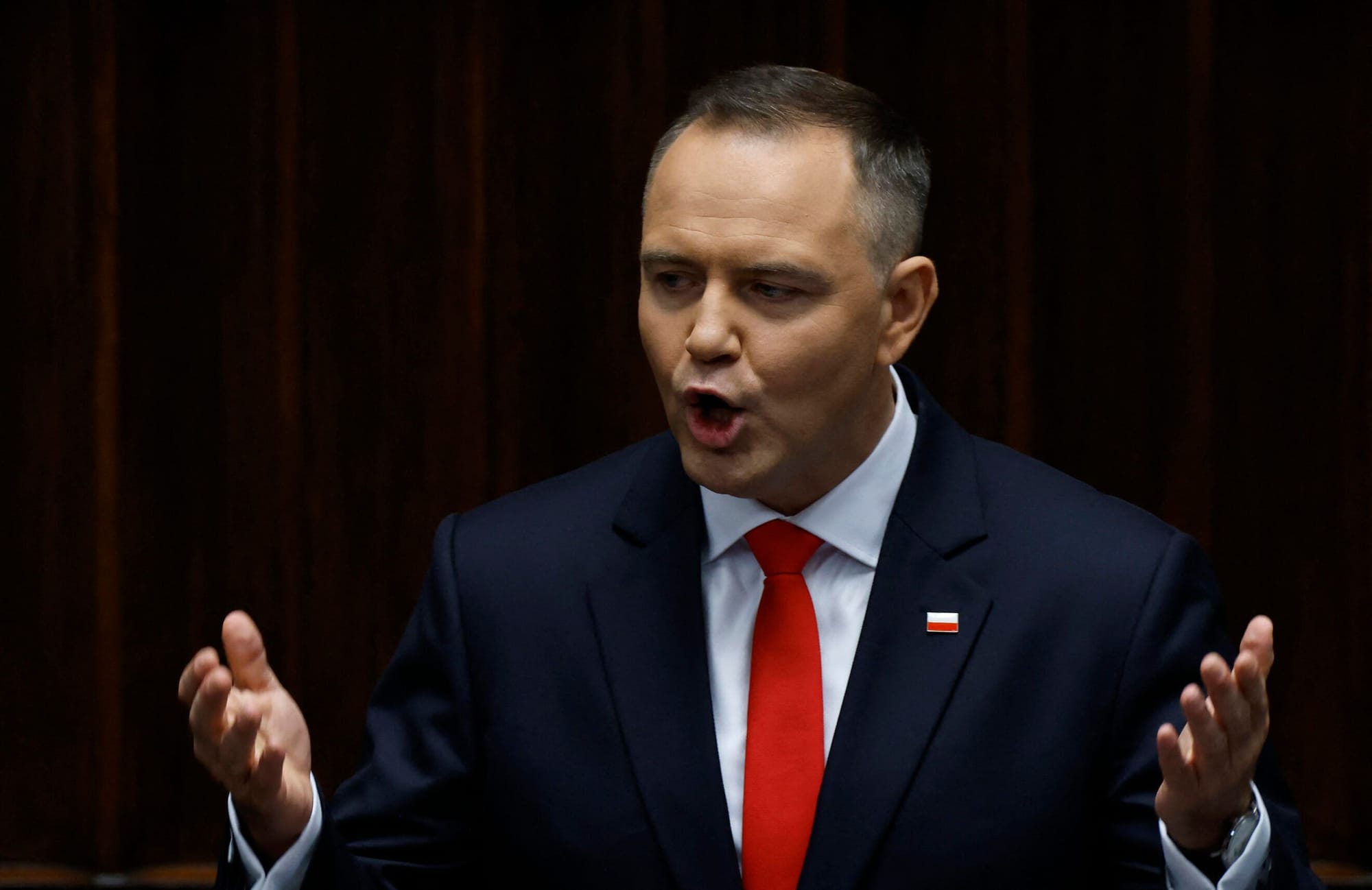
Nawrocki’s plan includes promoting popular tax cuts and reviving PiS infrastructure projects, moves that could strain the country’s budget and challenge Tusk’s fiscal plans. While the two share common ground on defense—both back Poland’s position as NATO’s top spender by GDP and a major arms supplier to Ukraine—political rivalry is expected to dominate.
Analysts warn the standoff could leave the EU’s fifth-largest economy drifting at a time when it plays a central role in Europe’s security architecture.
Latin America
Bolivia set for a rightward shift after Socialists lose key bloc
Bolivian bonds have rallied more than 30% this year as investors bet the August 17 presidential election will bring a market-friendly government and open the door to an IMF program, Reuters reports. The ruling Movement to Socialism (MAS), fractured by internal rifts, is polling near 12% after losing support from its traditional Indigenous base, which makes up 62% of the population.
Front-runner Samuel Doria Medina, a center-right businessman, has pledged to restore central bank autonomy, address the dollar shortage and tackle corruption. An outright win would avoid an October runoff, but with no candidate polling above 30%, a second round is likely.
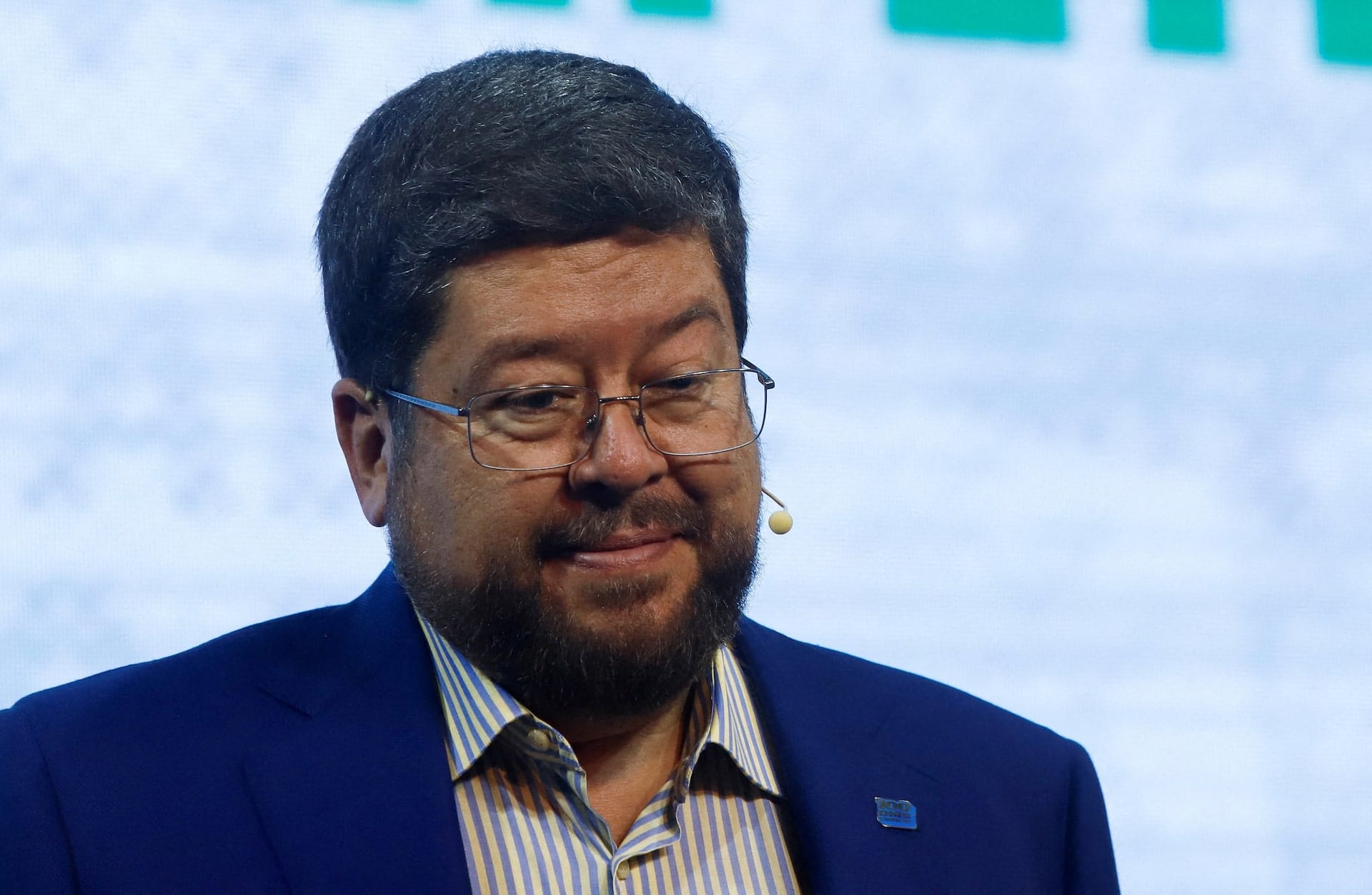
The vote comes amid the worst economic crisis since the 1980s, with foreign-currency reserves at record lows, inflation at a four-decade high, gas exports in decline and the black-market rate for the boliviano standing at nearly double the official exchange rate. Credit ratings firms have downgraded Bolivia this year, citing risks to debt service, while an IMF program would require politically painful reforms including ending fuel subsidies and lifting capital controls.
Colombia raises stakes with Peru over disputed island
Colombia’s President Gustavo Petro has accused Peru of unilaterally annexing Santa Rosa, a small Amazon River island claimed by both countries, after Peru’s Congress in June designated it a district in Loreto province, the AP reports. Petro said the move violated Colombia’s sovereignty and could threaten access to the Colombian port city of Leticia.
Colombia argues the island did not exist when 1920s border treaties were signed and lies north of the river’s deepest channel, the agreed boundary line. Peru maintains it has administered Santa Rosa for decades under those treaties.
- Colombia props up its debt as foreigners flee at record pace (Bloomberg)
The dispute, which has flared periodically, now risks straining bilateral ties in a tri-border area with strategic trade and tourism links. Petro has pledged to defend Colombia’s claim through diplomacy, while Peru says the district upgrade will improve governance and services for the island’s fewer than 1,000 residents.
Panama port deal devolves into ‘lawfare’
The sale of key Panama Canal ports has devolved into ‘lawfare’, with Panama caught in the middle of a tug of war between the US and China, the Economist reports. This week, Panama’s comptroller general filed two lawsuits to annul a pair of 25-year concessions for key ports along the canal, alleging constitutional breaches, $1.2 billion in unpaid royalties, and procedural irregularities.
The move, backed by President José Raúl Mulino, comes amid US pressure to remove the Chinese-linked Panama Ports Company, a CK Hutchison subsidiary, from the canal’s strategic gateways. US ambassador Kevin Marino Cabrera called the operator “a company of the Communist Party” and voiced support for banning Chinese-linked operators from key Panamanian ports.
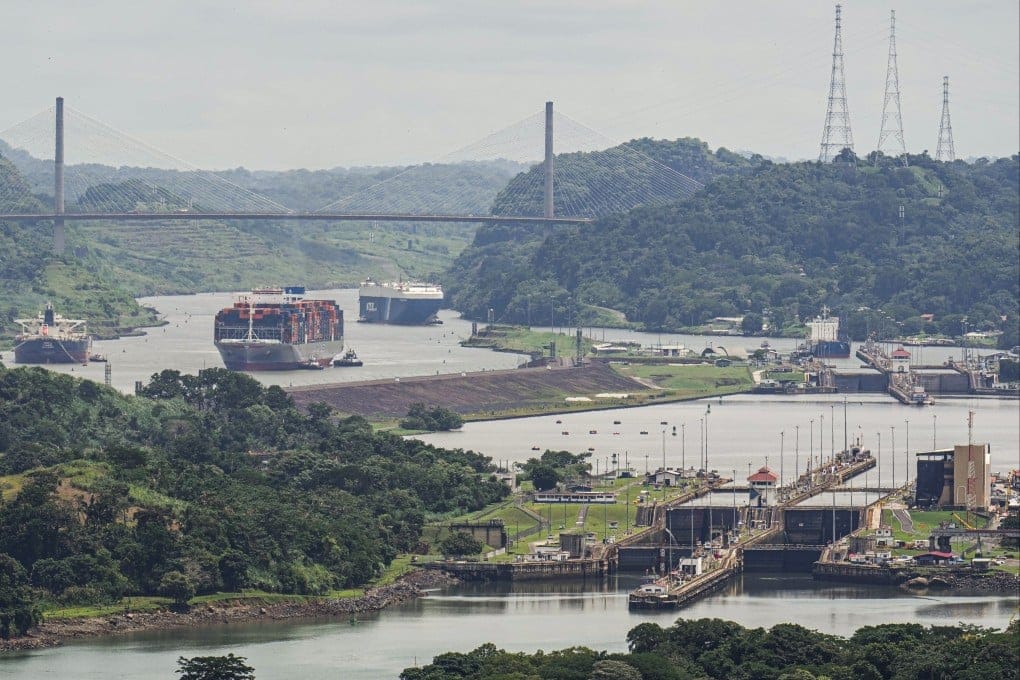
The dispute threatens CK Hutchison’s $23 billion global port sale to a BlackRock–Mediterranean Shipping Company consortium, which stalled in March after Beijing’s antitrust regulator intervened. China has since pushed for state-owned Cosco to take a 20–30% stake. An annulment could trigger a re-tender, likely favoring US-aligned bidders after Panama’s April withdrawal from the Belt and Road Initiative.
Global Macro
Stablecoins power new ‘era of dollarization’
US dollar stablecoins are rapidly becoming a parallel currency in parts of the developing world, offering a lifeline in countries with high inflation, currency controls and volatile exchange rates, Bloomberg reports. The US’ new stablecoin regulatory framework, Treasury Secretary Scott Bessent says, marks the start of a “next era of dollarization.”
Adoption is already surging in countries such as Bolivia, where businesses use Tether’s USDT to bypass foreign exchange restrictions, and Indonesia, where online sellers prefer it over PayPal for receiving overseas payments.
Stablecoins now have a $268 billion global market value, with more than 80% of transactions occurring outside the US. Advocates point to such adoption as evidence that the technology is digitizing long-standing demand for the dollar by making it instantly accessible to anyone with a smartphone, circumventing bottlenecks in banking systems and official markets.
What We’re Reading
Malawi and Zambia travelers will have to pay up to $15,000 to secure US visas (Bloomberg)
São Tomé and Príncipe to offer citizenship investment program (Africa Business Insider)
Israeli energy company NewMed has signed a deal to near-triple its gas flow to Egypt (FT)
High costs and slow speeds turn off Kenyans from Starlink (Bloomberg)
French telecom firm to deploy OpenAI models to translate African languages (Semafor)
South Africa reels from Trump tariffs as neighbors cut softer deals (FT)
Pakistan army chief to visit US for second time in as many months (Hindustan Times)
Pakistan begins deporting Afghan refugees (Dawn)
Bangladesh extortion crisis hits businesses and fuels inflation (Nikkei)
Philippine midterms, trade front-loading help 2nd-quarter GDP expand 5.5% (Nikkei)
Foreign companies rattled by Myanmar’s new strict cybersecurity laws (Nikkei)
Malaysia seals trade deal with Trump on promise of boosting tech, gas (Reuters)
China, US and Taiwan locked out of Pacific Islands Forum meeting (Nikkei)
Cook Islands to explore seabed mining with US (Bloomberg)
Lebanese cabinet approves objectives of US plan to disarm Hezbollah (Al Jazeera)
Romania holds interest rate with tax hikes set to fuel inflation (Bloomberg)
Slovenia introduces ban on imports from Israeli-occupied territories (Reuters)
Peru’s Petroperu eyes pipeline link for Ecuador oil (Reuters)
Chile’s inflation speeds past analyst forecasts in challenge to central bank (Bloomberg)
Milei struggles to unlock global capital markets for Argentina (FT)
We are committed to providing FMN readers with a free weekly digest of politically unbiased, succinct and clear news and information from frontier and small emerging markets.
Please consider becoming a paid supporter to help cover some of our costs and support our continued development of sharp markets-focused coverage and new informational products. Paid subscribers will also gain exclusive access to our quarterly EM/FM report that aggregates EM insights from 25 major banks, international institutions and consultancies.





